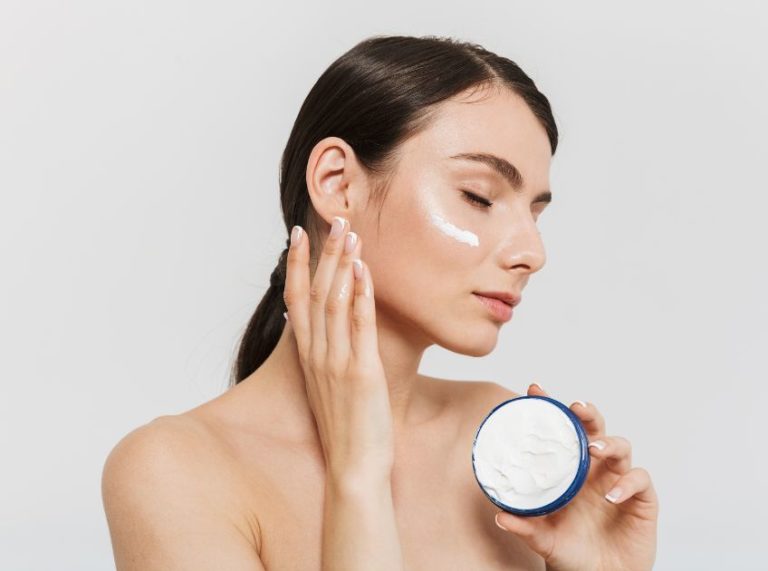
Important: This article is for informational purposes only. Please read our full disclaimer for more details.
Gelatin has emerged as a popular natural ingredient in both skincare products and dietary supplements, prized for its potential to enhance skin elasticity and reduce signs of aging. This protein-rich substance, derived from animal collagen, offers multiple pathways to support skin health through both topical application and internal consumption. This article explores the scientific mechanisms behind gelatin’s beneficial effects on skin elasticity, backed by clinical research and expert insights.
What is Gelatin?
Gelatin is a translucent, colorless, and flavorless food ingredient derived from collagen obtained from animal body parts. It is primarily composed of:
- Proteins (85-92%)
- Water (8-15%)
- Mineral salts (<2%)
The protein component consists mainly of specific amino acids that play crucial roles in skin health:
| Amino Acid | Approximate % in Gelatin | Role in Skin Health |
| Glycine | 27% | Supports collagen synthesis |
| Proline | 16% | Essential for collagen structure |
| Hydroxyproline | 14% | Stabilizes collagen triple helix |
| Glutamic acid | 10% | Supports moisture retention |
| Alanine | 9% | Helps tissue repair |
Mechanisms of Skin Elasticity Enhancement
1. Collagen Replenishment and Stimulation
Skin elasticity naturally declines with age due to decreased collagen production. Research published in the Journal of Medical Nutrition and Nutraceuticals demonstrates that gelatin consumption can significantly impact collagen levels in the skin (Sibilla et al., 2015).(1)
The mechanism works in two ways:
- Direct replenishment: Gelatin provides peptides that serve as building blocks for collagen
- Stimulation of production: Components in gelatin activate fibroblasts, the cells responsible for synthesizing collagen
A randomized controlled trial by Proksch et al. (2014) in the Skin Pharmacology and Physiology journal found that participants taking collagen peptides (similar to those in gelatin) for 8 weeks showed a 20% increase in skin elasticity compared to placebo groups.(2)
2. Essential Amino Acid Delivery
The unique amino acid profile of gelatin provides critical nutrients that support skin structure and function:
- Glycine and Proline: These amino acids make up approximately 50% of the total amino acid content in collagen and are relatively scarce in the modern diet. Research by Choi et al. (2019) in Nutrients journal confirms their essential role in maintaining skin elasticity and preventing premature aging.(3)
- Hydroxyproline: This modified amino acid stabilizes the triple-helix structure of collagen molecules. A study in the Journal of Agricultural and Food Chemistry (Edgar et al., 2018) demonstrated that hydroxyproline-rich peptides from gelatin significantly improved skin elasticity parameters when supplemented orally.(4)
3. Enhanced Moisture Retention and Hydration
Proper skin hydration is fundamental to maintaining elasticity. Gelatin contributes to this in several ways:
- Formation of protective barrier: When applied topically, gelatin creates a thin, breathable film that reduces transepidermal water loss
- Humectant properties: Gelatin attracts and binds water molecules, helping to maintain optimal skin hydration
According to research published in the International Journal of Cosmetic Science (Kim et al., 2018), gelatin-based formulations increased skin moisture content by up to 28% after four weeks of regular application.(5)
4. Antioxidant Support
While not primarily an antioxidant, gelatin contains peptides that have demonstrated antioxidant properties:
- Protection against free radicals: Certain peptide sequences in gelatin can neutralize reactive oxygen species that contribute to collagen degradation
- Support for endogenous antioxidant systems: Research in the Journal of Functional Foods (Wang et al., 2020) suggests gelatin peptides may enhance the body’s natural antioxidant defenses (6)
Clinical Evidence for Skin Benefits
Oral Consumption Benefits
A comprehensive meta-analysis published in the International Journal of Dermatology (Asserin et al., 2015) examined 11 randomized controlled trials involving over 805 participants and found (7) that:
- Daily consumption of 2.5-10g of collagen peptides (similar to those in gelatin) for 8-12 weeks led to:
- 7-12% increase in skin elasticity
- 9-23% increase in skin hydration
- 12-31% reduction in wrinkles
Topical Application Benefits
Research published in Molecules (Park et al., 2020) evaluated the efficacy of gelatin-based masks (8) and found:
- Significant improvement in skin elasticity measurements after 4 weeks of twice-weekly application
- Enhanced moisture retention compared to control formulations
- Reduction in the appearance of fine lines, particularly in participants over 40 years of age
Optimal Ways to Use Gelatin for Skin Health
Dietary Incorporation
- Daily intake: Research suggests consuming 5-10g of gelatin daily for optimal skin benefits
- Culinary uses: Incorporate gelatin into:
- Homemade bone broths
- Desserts like panna cotta or fruit jellies
- Smoothies and protein shakes
Topical Applications
- Gelatin masks: DIY or commercial formulations applied 1-2 times weekly
- Combined approaches: Products that pair gelatin with complementary ingredients like:
- Vitamin C (enhances collagen synthesis)
- Hyaluronic acid (boosts hydration)
- Antioxidants (protect existing collagen)
Potential Limitations and Considerations
While research strongly supports gelatin’s benefits for skin elasticity, several considerations should be noted:
- Allergic reactions: Some individuals may experience sensitivity to animal-derived gelatin
- Ethical concerns: Vegetarians and vegans may prefer plant-based alternatives like agar or pectin
- Quality variations: Not all gelatin products contain the same peptide profiles or concentrations
Scientific evidence strongly supports gelatin’s role in improving skin elasticity through multiple complementary mechanisms. From providing essential building blocks for collagen synthesis to enhancing moisture retention and offering antioxidant protection, gelatin offers a multifaceted approach to skin health.
For those seeking natural approaches to maintain youthful, resilient skin, incorporating gelatin into both dietary and skincare routines presents a promising strategy backed by research. As with any skincare approach, consistency is key—studies indicate that optimal results typically require 8-12 weeks of regular use.















